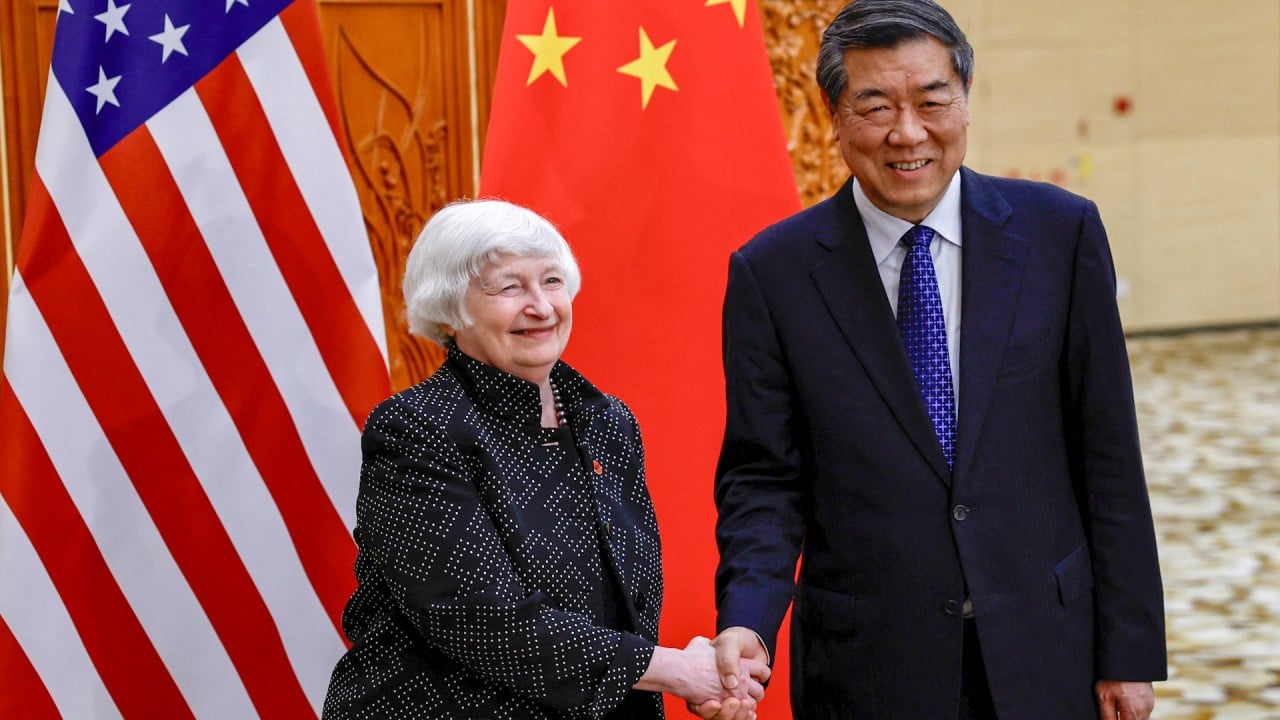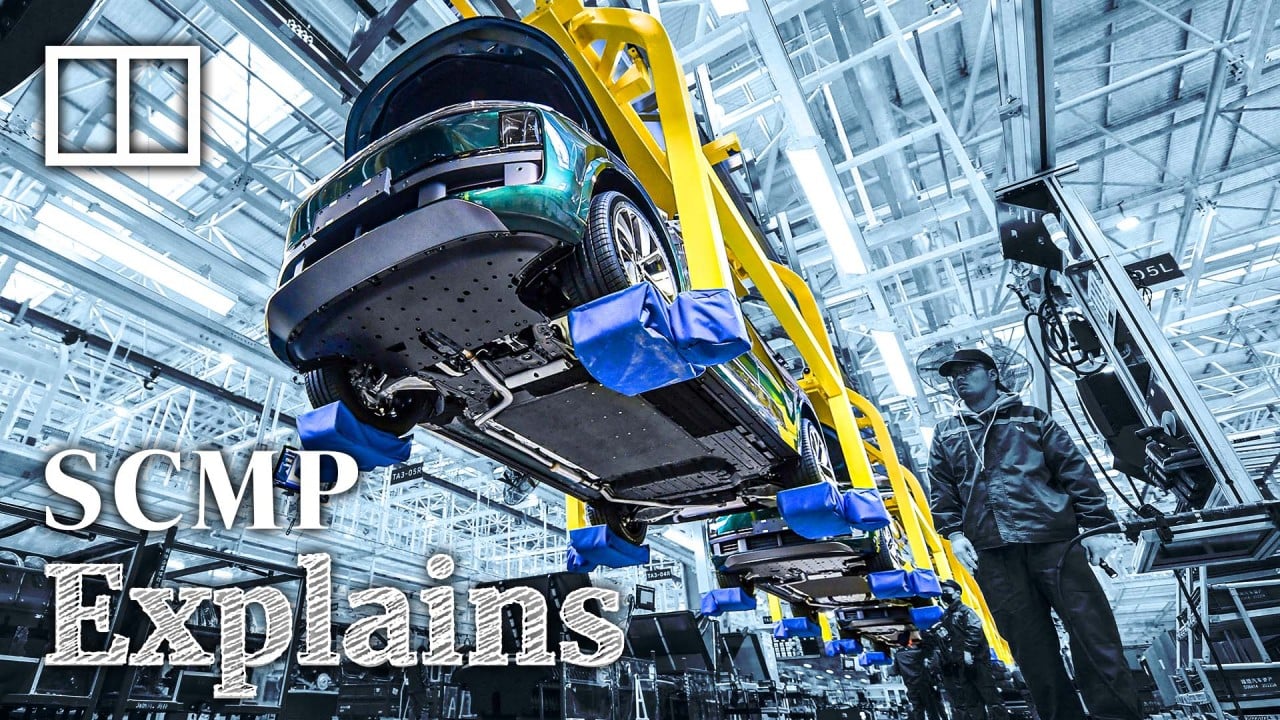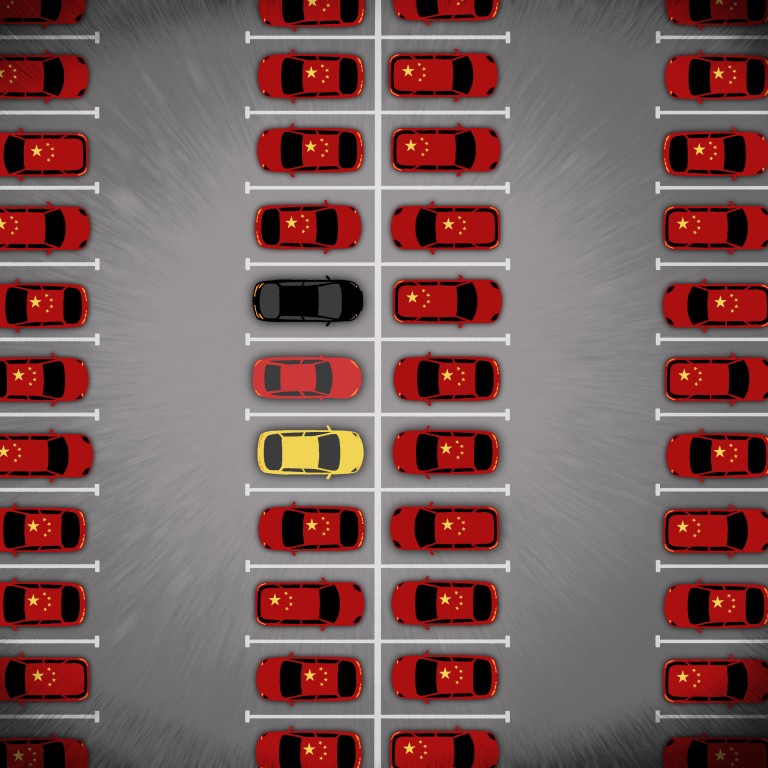
Germany’s China shock: as Scholz leaves Beijing, others raise alarm about waning economic honeymoon
- German industry debates how to proceed after finding cracks in a once robust and mutually beneficial relationship
- ‘China is moving into the kind of space that Germany used to occupy quite prominently in the world economy, especially if you look at export numbers’: economist
For more than 20 years, Webasto has been at the heart of one of the great economic marriages of modern times.
First making sunroofs, and then heating, air-conditioning and battery systems for local and international carmakers that were rushing to build factories of their own in the world’s new workshop, the company grew exponentially to become a global leader in its niche.
German exports boomed as newly minted Chinese consumers bought their first cars, and factories around the manufacturing heartland needed machine tools and kit. German joint ventures helped school Chinese partners and propel an economic miracle that saw China become the world’s second-largest economy, and that cushioned Germany from successive economic crises.
But over the past couple of years, cracks have started to show. Amid declining demand and stiffer competition, Webasto announced it would cut 1,600 jobs from its global workforce.
“We notice that the competition in the automotive supply industry in the country is getting tougher. There are many new market participants, and also – especially Chinese – car manufacturers who have suppliers within their own company structure,” Webasto chairman Holger Engelmann said.
“After many years of growth, we have recently experienced a decline in demand for our products. As a result, we recorded a stagnation in sales 2020 and a decline [in] 2023 in comparison to the previous year for the first time.”
A growing number of economists believe the prolonged Sino-German honeymoon period is over. Tales like Webasto’s struggle with Chinese competition will become the rule rather than the exception in the relationship as the complementary nature that enriched both sides over the past quarter of a century wanes.
On one side, some big companies are doubling down on their investments in China, typified by Volkswagen’s announcement last week it would spend US$2.68 billion expanding production and research facilities in Hefei in Anhui province in southeastern China.
German leader begins China visit amid mounting EU concerns over unfair competition
From this side, any disruption to Sino-German trade is troublesome. Senior German automotive lobbyist Andreas Rade accused the European Union investigation into Chinese electric vehicle subsidies of having “no consensus” among member states, and being “not a good signal”.
But many businesses on the front lines disagree. As China has moved up the value chain and its manufacturers have become more sophisticated, suppliers and customers of German industry have become fierce competitors. The German automotive industry’s sluggish embrace of new electric vehicles, along with China’s stunning rise in this sector, presents a whole new raft of challenges.
Germany dodged a “China shock” when China joined the WTO a generation ago. Research estimates, however, that the trend claimed more than half a million American manufacturing jobs, leading to frustrations that helped usher in the political tumult of Donald Trump.
Now, with the German economy ailing, some predict its China shock has arrived.
A report by research house Rhodium Group found big German companies were cutting jobs in their home market to expand investment in China, and noted a backlash from trade unions.
Chemicals giant BASF announced 2,600 job losses in Germany last year, even as it expanded its investments in China – a trend labour unions said was “not acceptable”.
Engineering giant Bosch cut several thousand automotive jobs in Germany this year and last, while pumping several billion euros into research and development and production centres in China. The labour union IG Metall described it as “a fatal signal for Germany as an industrial hub”, according to the Rhodium report published in February. Similar trends were noted for automotive giants Mercedes-Benz, Volkswagen and ZF Friedrichshafen.
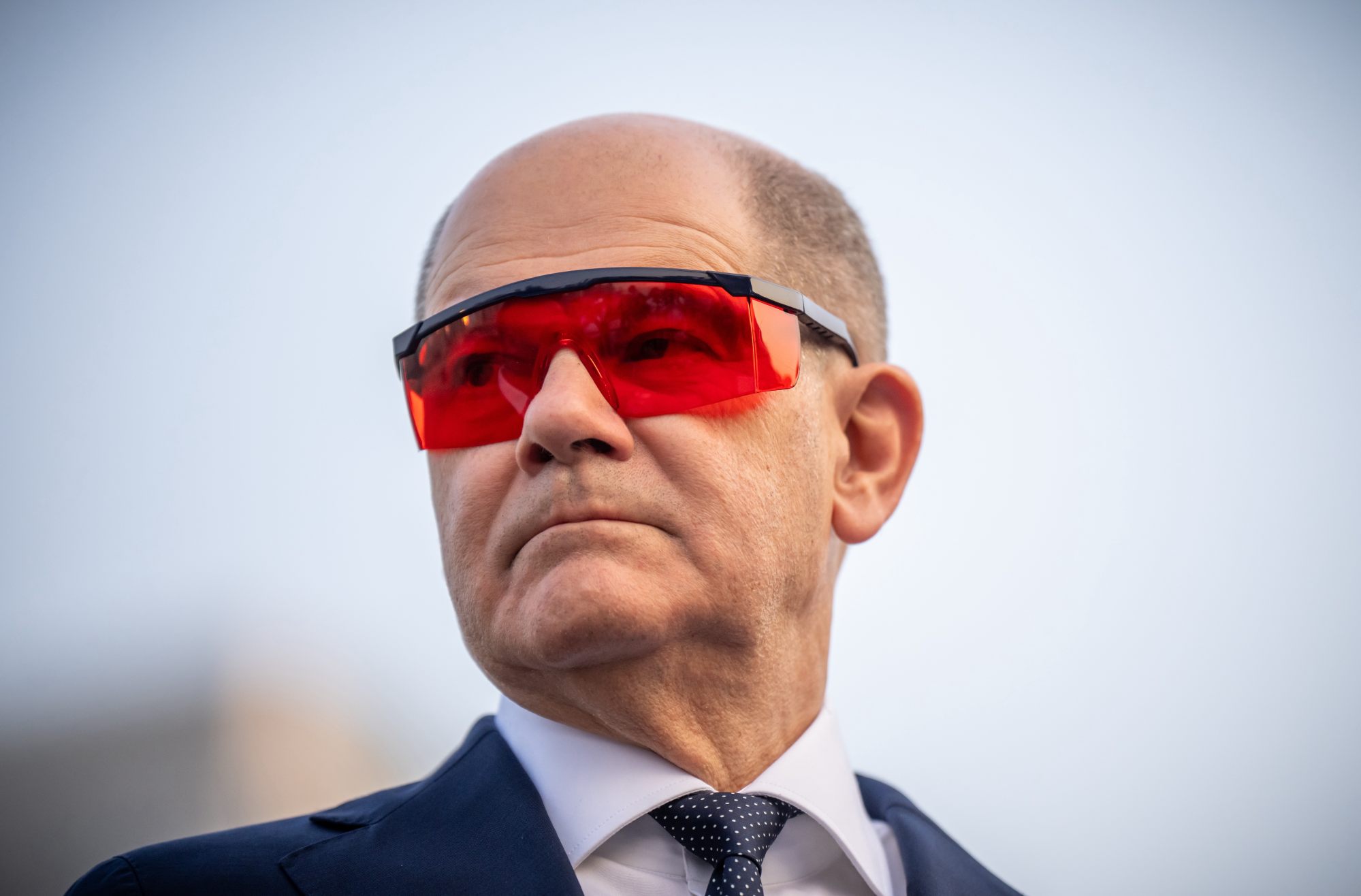
At the same time, German exports to China have been plunging. In 2023, they fell 4.2 per cent from the previous year. The trend worsened into 2024, Chinese customs statistics show, with a 16.6 per cent slump over the first quarter.
“German firms are likely to see their market shares in China erode, while coming under significant pressure from Chinese competitors in third markets,” Rhodium analysts wrote.
“Against the backdrop of a stagnating German economy and more volatile political environment, job losses in key German industries could trigger a backlash that has been largely absent until now.”
Ulrich Ackermann has worked in the German machinery sector for 30 years. But he has never seen a situation like that faced by the industry since 2022.
“It’s true that for 20 years China was for our industry a fast and continuously growing market – turnover in China grew by 10-20 per cent every year for 20 years,” said Ackermann, managing director of foreign trade at the Mechanical Engineering Industry Association (VDMA), which represents 3,600 German companies.
The pandemic brought “continuous growth to an abrupt end”. But when China’s harsh zero-Covid policy concluded, VDMA members were bullish going into last year, its surveys showed.
“They said 2023 will be a good year again, like before Covid. But the result was a relatively flat year. And the expectations now are still low. Nobody expects big growth in the Chinese machinery market this year,” Ackermann said.
He paints a grim picture of German machinery makers being attacked from all sides by relentless Chinese competitors. They are being outmuscled in the Chinese market, undercut by Chinese rivals on third markets and now see them showing up in Europe, too.
“This is really new: starting last year, on the European market we see more and more Chinese products in some machinery sectors related to volume or mass production. These are more or less standard machines, and they are entering the European market with high speed at prices where sometimes Europeans cannot buy the materials,” Ackermann said.
“It should go without saying that a large manufacturing surplus requires an offsetting deficit in manufactures elsewhere in the global economy,” read a recent report last month by the Council on Foreign Relations, a New York-based think tank.
BMW’s China venture to assemble EVs including Minis for consumers worldwide
In other words, China’s overcapacity will continue to eat into the market share of other nations. This has spiralled into a political row, spawning a plethora of investigations at the EU level where officials say they see cheap Chinese exports drowning out local competition.
This week, Brussels published a 700-page report drawn from Chinese government information that accuses Beijing of “distortions” in key economic sectors.
The purpose of the paper, insiders said, was to provide European companies with the data to flesh out anti-dumping complaints. They see Beijing doubling down on its economic policies rather than heeding EU concerns about overcapacity, leading to a natural result of more trade disputes.
Nils Schmid is the foreign affairs spokesman for Chancellor Scholz’s Social Democratic Party. During an interview before the 2021 election, he worried that German firms would “have their lunch eaten” by Chinese partners in the future.
Now, he points to Chinese electric vehicle showrooms in German cities and wonders if that moment has arrived.
“You see the car shops in very prominent places and the cars in the streets, in relatively small numbers, but still. This is probably the most prominent sign of this change occurring here in Germany. The car market is a defining feature of the German national economy, a sort of national pride,” Schmid said.
Back at the VDMA, veteran free-trade advocate Ackermann agrees.
“One option is to use political instruments, anti-dumping, anti-subsidy measures, punitive tariffs, whatever else you can think of. I think we will start to see this more, not only the machinery here, but in other sectors of the industry too. Because otherwise we have no chance of beating this unfair competition,” Ackermann said.
Neither Schmid nor Ackermann could be fairly described as protectionist hawks but recent events appear to have convinced them that China’s economic model is not likely to change, and that Europe must respond.
Speaking from his offices in Frankfurt, Volkmar Baur, a China economist at German financial firm Union Investment, suggested economic realities meant this situation would continue.
“I think it’s absolutely fair to say that China is moving into the kind of space that Germany used to occupy quite prominently in the world economy, especially if you look at export numbers,” he said, pointing to China’s “high and rising share of not only automobiles, but also machinery”.
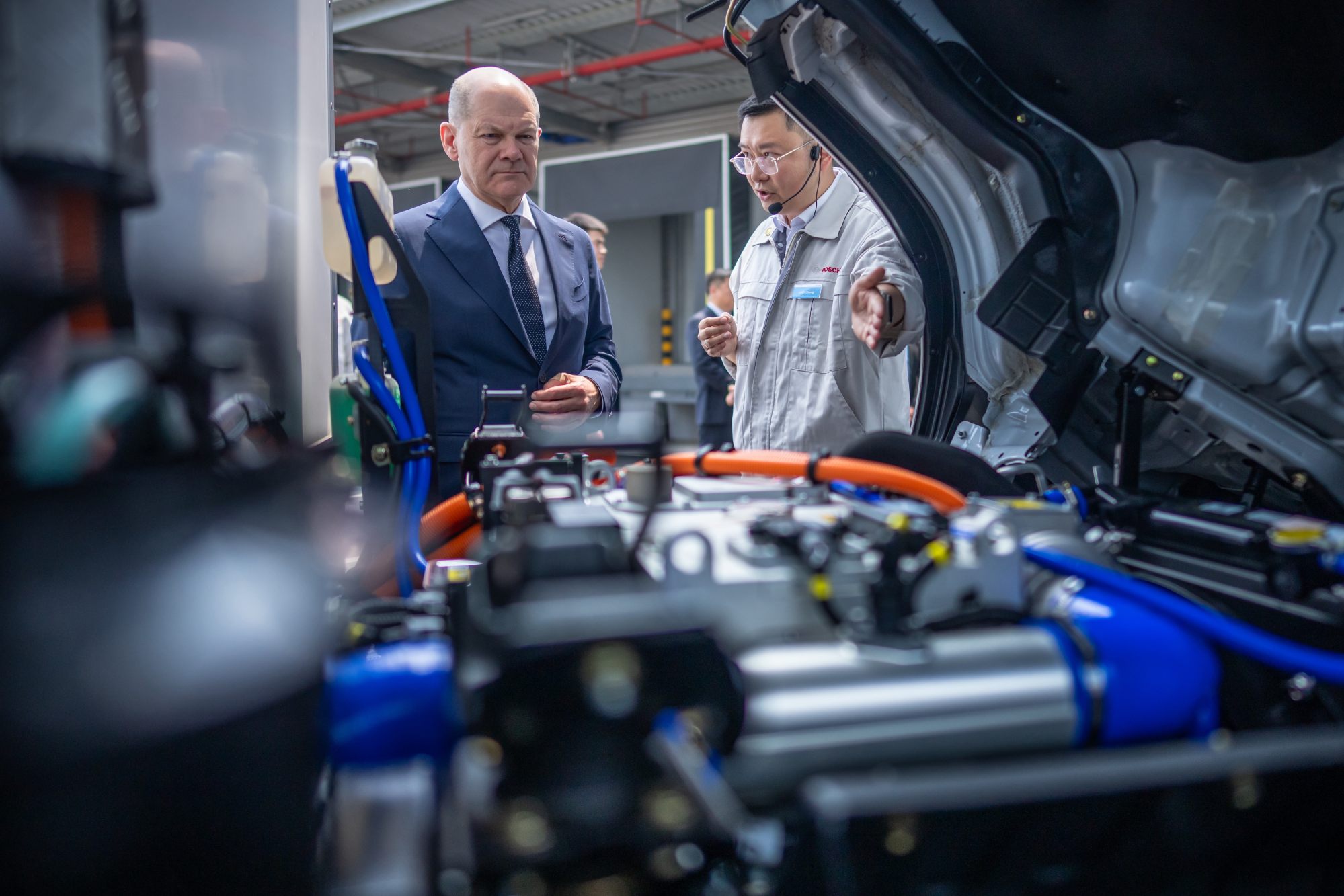
For Baur, the China shock is here, even if Germany’s political classes are slow to realise it.
“I think we’re seeing it right now. And I think a lot of people are still saying, well, it’s the Ampelkoalition, it’s their fault that the economy is going down the drain, or it’s the energy shock, or it’s a climate hoax that’s putting pressure on people, but I don’t see a lot of people talking about China,” he said, referring to the German word for the country’s “traffic light” coalition government.
“But in a few years when energy prices are normalised, everybody’s going to see that it’s been China all along.”


